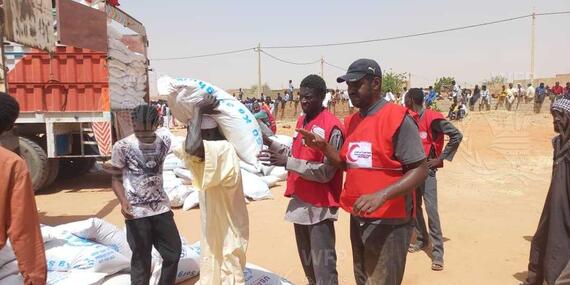Today's top news: Sudan, Yemen

Sudan
The Under-Secretary-General for Humanitarian Affairs, Martin Griffiths, has welcomed the extension of the ceasefire in Sudan, as the humanitarian community there continues to scale up deliveries of life-saving assistance.
As of Monday, at least 100 trucks loaded with humanitarian assistance had reached their destinations in several states and the capital Khartoum. They were carrying 2,600 tons of supplies, including nutrition, water, sanitation and health items for up to 2 million people.
The World Food Programme (WFP) has reached some 675,000 people across Sudan since restarting operations – and on Saturday, WFP began distributions in Khartoum. So long as the security situation allows, the agency plans to reach at least half-a-million people in the capital.
Meanwhile, the UN Children’s Fund (UNICEF) is warning that more than 13.6 million children in Sudan are in urgent need of humanitarian aid, after six weeks of conflict. This is more than the entire population of Sweden, Rwanda or Portugal – and the number is growing. UNICEF launched its new Humanitarian Action for Children in Sudan – and is calling for US$838 million to address the crisis.
Yemen
The Central Emergency Response Fund has allocated $18 million to address food security in the country.
The funds seek to help reduce high levels of food insecurity and rising malnutrition rates driven by the conflict, economic shocks and climate change, among other factors.
More than 17 million people, or about 80 per cent of the population, are facing high levels of food insecurity across Yemen. Recent UN analysis reports rising malnutrition rates, with children under five being particularly affected.
The $4.3 billion appeal for Yemen in 2023 is currently just over 24 per cent funded. This allocation will allow humanitarian agencies and partners to support people in the governorates of Hajjah, Al Hodeidah and Ta’iz – which are among the most vulnerable and affected by both food insecurity and malnutrition.
